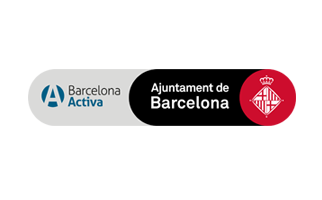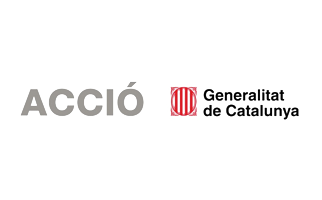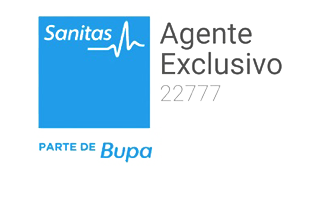Let our immigration lawyers guide you step by step






5-year residence permit for non-eu relatives of a European Union citizen in Spain
If you are the family member of a European Union citizen, you can easily get the residency in Spain.
Make sure that the EU citizen (your relative) has a work contract or sufficient economic means.
You will need to start living with the EU national with whom you are applying to this permit.
Finally, you will need to demonstrate that you are actually the relative of the European Union citizen.
5-year residence permit for non-eu relatives of a European Union citizen in Spain

Are you a NON-EU citizen that wants to get a Spanish Residence Permit? Then, if you are the relative of a EU citizen you have constituted marriage or a civil partnership (pareja de hecho) with an EU national, you can easily start to work and live in Spain as if you were a resident.
Avoid a list of long requirements and tedious paperwork. This permit will save you time. Because getting the Spanish Visa trough a EU resident is one of the easiest ways to start living legally in the country for a long period of time.
This procedure grants to non-EU citizens who are relatives of Spanish nationals or citizens of the European Union a residence and work authorization with the same rights as if they were EU nationals. Which are the exact relatives that have right to obtain this residence permit?
We can also help you out with all the legal procedures to register your civil union ("pareja de hecho") in Spain!
How will you benefit by getting your residence permit with us?
We will accompany you through the whole process, from the beginning until you have received your residence permit.
You would just need to sign. We will fill out for you all the necessary documents and send them to the competent authority.
We will be in charge of all the translations into Spanish needed during the whole procedure, both for the application and for the renewal.
Enjoy an easy application procedure with us. From registering your civil partnership to obtaining residency with your EU family card.
The conditions that will allow you to bring a relative to Spain under this residence permit are:
The kinship bond with the European Union citizen that makes it eligible to get this visa will depend on the following two cases.
In the case of being the relative of a student in Spain:
In the rest of the cases, in addition:
After the first 5 years of living in the Spanish territory with this permit, you will need to renew. The requirements are basically the same. You must demonstrate that the family tie is still in place and the possession of sufficient economic means.
You must present all the documentation to renew your community card during the period between 30 days before the expiry of the card and 90 days after that.
After sending your renewal request to the foreigners’ office, the administration will have three months to approve or deny your file.
If after this period you do not receive a response, negative administrative silence will be interpreted as a rejected application
The requirements are basically the same you had to meet when you first got your residency card as a relative of an EU citizen.
For the renewal, you will have to present:
The documents to present to obtain this visa are the following:
The relative of the European Union citizen has 3 months from his/her entry to Spain in order to present all the required documentation to the Immigration Office.
What happens if those 3 months end and you still have not got your residence permit? No problem: you will be given a receipt that will guarantee your legal stay until you finally receive the card.
Not necessarily. As long as you meet the following 2 requirements, you can cancel your partnership and still keep your card as a family member of an EU citizen:
And what happens if you do not reach those three years? There are 4 cases that would allow you to keep your card, and you can find them here.
That entirely depends on the country of origin of the European citizen. That is, if you registered your marriage in a country outside of the EU, you must see if the EU national’s country of origin is within this list.
If that is the case, then the legal union will be totally valid and you will just need to legalize/apostille it. Otherwise, you must register it first in the EU’s relative country.
As we have just mentioned, in order to renew this card you must prove that you still have the emotioanl bond with the family member through whom you obtained the residency.
In the case of an ascendant or descendant relationship (parents or children), there is no problem. The bond is maintained throughout your entire life by its very nature.
Nevertheless, we find a small obstacle in the case that you obtained your card as a relative of a community member through marriage or a common-law couple.
What happens if you separate or get divorced? Can you still renew the card?
In the case that the link has been broken, in order to renew you must have been married for 3 years (out of the 5), and one of them living together in Spain.
In that case you could keep your current regime.
It is important that if you do not live together and you are separated you get an official divorce before you try to renew.
The mere fact of filing a divorce demand against court would be enough. You will have to add that document to your renewal application.
In this case (and this point is very important) it is the EU Regimen the one who establishes in which way we can demonstrate that we actually meet the economic requirements, and it does that in its article 7.
As we have already mentioned, it is important to take this into account since this point creates wide differences with the case of family reunification, which ends up with a similar result (we bring our relatives to Spain) but which is regulated by different legislation (the General Immigration Regime).
Thus, the Community Regime establishes 3 different ways to prove we meet the economic requirements, which will depend on the situation the Spanish or EU citizen finds herself in:
The first case is that of EU or Spanish citizens who are working in Spain, either for a company or as self-employed individuals.
This mere fact of working (which implies being registered with the Social Security) is sufficient proof to justify that there are sufficient economic means for the non-EU family member to obtain his or her 5-year card.
And, in this sense, we must take something into account.
Many immigration offices mistakenly ask for extra requirements in terms of working conditions.
But the reality is that there is neither a minimum period of time that you must have been working in order to demonstrate the economic means effectively, nor is there a minimum salary specified, nor the contract must be full or part-time.
Simply being registered with Social Security and working for a company or as a self-employed person you will have sufficient justification.
Therefore, if the immigration office makes any type of requirement or denial for one of these reasons, it would not be justified at a legal level nor be respecting the EU regime.
The fact of having been working for a minimum period of time or receiving a salary that reaches a certain amount is something that is a requirement in the case of family regrouping under the general regime; but not in the case of the community card.
What documents will you need to provide to prove that you have a job?
In the case of working for a company, basically your employment contract (which must include all the company’s identification data).
But instead of this contract, you can also provide the registration document (or the assimilated one) to Social Security; or give your consent for the verification of the data in the files of the Tax Agency and the Social Security.
On the other hand, if you are a self-employed worker:
If the EU citizen is a student, the situation is even simpler.
In this case, she will only have to present two documents to demonstrate that she has sufficient economic means:
But it would not be necessary to submit any type of additional proof demonstrating that really we have those economic means (as for example by showing balances in your banking account).
You simply need to legally confirm that you are committed to supporting your relatives in the Spanish territory.
Finally, there is the last case: that of a Spanish or EU citizen who neither studies nor works, but who has sufficient income or money to support their family members.
In this case, there is not a unique or exclusive way to demonstrate the economic requirement, since it will depend on the particular case and the origin of the funds.
That is why you are allowed to prove it through any evidence valid in law.
This would be the case, for example, if you have enough money in your bank account (in which case you would provide a certificate showing the outstanding balance), if you receive income and rents from any type of asset, if you have a pension, financial assets such as shares or dividends, etc.
Title deeds, certified checks, or credit cards showing the necessary amount as available credit would be other valid proofs.
The only difference in this third case is that here it is required that such economic means reach a minimum monetary amount.
This amount could vary depending on the proof you are using, but if we take as an example the most typical case of demonstrating the possession of means (through money in a bank account), that would be a minimum of 9586.64€ for a family of two people.
And, approximately, for each additional member, you must add about 3.000€ extra.